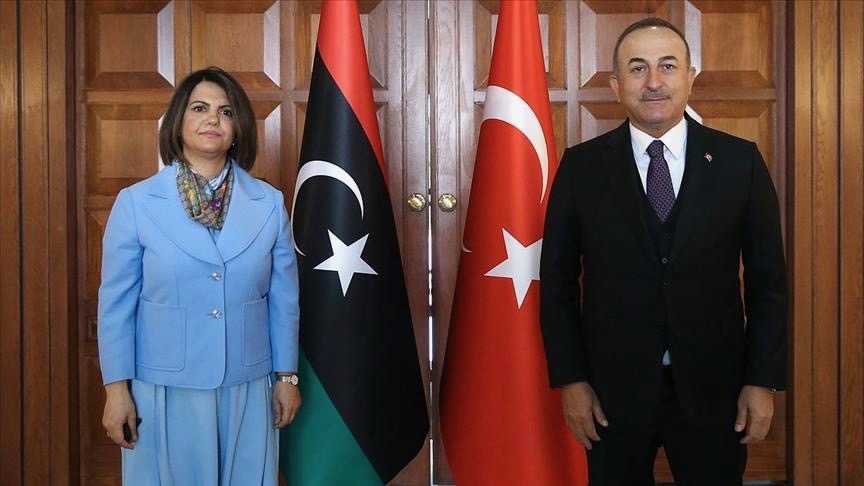The foreign minister in Libya’s interim government, Najla Mangoush, demanded on Monday, May 3 that all Turkish fighters be withdrawn from the country. She urged Turkey to implement the UN Security Council resolution which asks for repatriation of all foreign troops from Libya.
Mangoush was addressing a joint press conference in the capital Tripoli after a meeting with her Turkish counterpart Mevlüt Çavuşoğlu, who was on a visit to Libya along with Turkish defense minister Hulusi Akar. Çavuşoğlu defended the deployment of Turkish forces in Libya, claiming it was part of an agreement signed with the previous Government of National Accord (GNA).
Following the initial successful rounds of the political dialogue facilitated by the United Nation Support Mission in Libya (UNSMIL) to end the decades-long war in the country, the UN Security Council passed resolution 2542 in September last year asking all foreign mercenaries to withdraw from Libya. It also asked UN member states to not interfere militarily in the affairs of the country.
Turkey had deployed thousands of fighters from the Syrian National Army, an opposition group fighting against Syrian government, along with some Turkish soldiers in Libya last year. The deployment was a part of a deal signed by the GNA led by Fayez al-Sarraj and Turkish president Recep Tayyip Erdogan in December 2019.
At that time, the GNA-controlled Tripoli was under threat from an offensive by the rival Khalifa Haftar-led Libyan National Army. As a result of Turkish deployment and military supplies, the GNA was able to defend the capital and even took back some of the territories controlled by Haftar’s forces.
The political dialogue in Libya has since led to the formation of a transitional government led by Abdul Hamid Dbeibeh, and the formation of a three-member presidential council led by Mohammad Younes Menfi. It also led to the dissolution of all rival political centers. The interim government is tasked with preparing the country for a national election in December 2021.
According to estimates presented in the UN Security Council, there are around 20,000 foreign fighters in Libya. A majority of them are Syrian mercenaries deployed by Turkey. The removal of foreign fighters is considered crucial for achieving peace in Libya, which has been divided into different power centers since the NATO-led invasion of the country in 2011.





